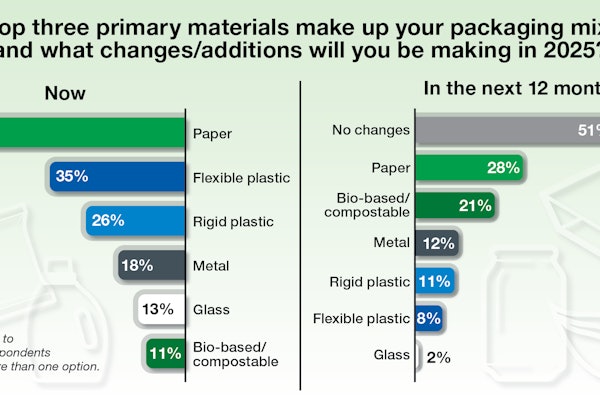
It’s no longer just a matrix for growing food. Instead, various forms of modified, flavored topsoil are an increasingly popular food enhancement that provides fiber and texture while it reduces costs and minimizes environmental effects.
Of course, I made that up, but how different is it from some of the emerging product categories that are legitimately dominating food news these days? Insects or jellyfish as a source of protein, meat alternatives that don’t taste like meat, other meat alternatives that do taste like meat, and other surprising examples seem to emerge weekly. These products present new challenges for package labeling, as well as challenges around basic details like what to name the products, because it’s not always clear to consumers what these products are made of or are supposed to resemble or to taste like.
As you may know, definitions are the coin of the realm in the world of food law, and nothing shakes up the laws of physics in food law quite like products that challenge the boundaries of the traditional definitions. That’s why dietary supplements continue to
be such a puzzle to so many companies and regulators: they look
like food, you take them like food, but they often have claims of health effects that were more traditionally associated only with drugs. Lots of those claims are lawful because they are true, some are not lawful even if they are true, but just the fact that dietary supplements are making those claims of effect has a way of blurring the line between the definition of “food” and “drug” in the minds of many consumers.
That ever-tough question of why you eat something was at the core of the appeal of supplements. The U.S. Food and Drug Administration would tell you that you eat or drink traditional foods and beverages for “taste, aroma or nutritive value,” but that you ingest supplements in order to supplement your diet in one or another substance.
What, pray tell, would you say is your reason for eating vegetable-based meat substitutes? Or for eating insect protein? Sometimes the inspirations are from the world of vegetarianism, veganism, or environmental considerations, and sometimes just good old-fashioned marketing buzz. Clearly, more and more consumers are opening their minds and mouths to the new, resulting in an explosion of revolutionary food products that challenge the traditional definitions.
For example, for many years, a variety of brands of vegetable patties has been available, made without meat but often calling themselves “burgers,” a term traditionally reserved for meat-containing patties. More recent entrants include the Impossible™ Burger from the company Impossible™ who says it delivers all the flavor, aroma, and beefiness of meat from cows, but it is made using soy and potato, heme for flavor, coconut and sunflower oils for fat, and methylcellulose as a binder.
Beyond Meat, another emergent player, touts itself as making the “world’s first plant-based burger” made with a combination of pea, mung bean, and rice, among other ingredients, but without soy or gluten or GMO ingredients, and other products.
(I’d like to be among the first to remark that this trend toward complex substitutes for traditional forms of food is precisely the opposite of the trends that seemed to be dominating consumer motivations lately, namely food that wasn’t processed, or that had “clean,” short and simple ingredient lists.)
In reaction to the newcomers, the makers of the traditional foods don’t so much scratch their heads as pound their fists. They really hate having to compete with products that claim to be somehow superior to the traditional form of the food, especially if the new foods want to incorporate the traditional food’s name in their new name. Non-dairy milk ain’t milk, they say. Non-butter shouldn’t be called butter, they say. Meatless meat shouldn’t be called meat, they say. Traditionalists often object to any use by non-traditional products of the traditional terms “meat” or “burger” even if the non-traditional product’s name makes clear it’s not meat, such as in the name “veggie-burger.”
Lawmakers often try to help them. Traditionalists held sway over the legislature in the State of Arkansas, for example, where a new law designed, it says, to protect consumers from false or misleading labeling of agricultural products edible by humans, prohibits representing an agricultural product “as meat or as meat product when…it is not derived from ‘harvested livestock, poultry, or cervids (deer-type mammals),’” or misrepresenting products as beef, pork or even rice.
In several states, makers of the new style products have sued states who pass restrictive laws like this. For example, the maker of Tofurky, which markets a wide range of meat substitute products, usually made from tofu or wheat protein (seitan) and flavoring ingredients, sued the State of Missouri claiming its law violates the company’s Constitutional right of free speech, is an undue burden on interstate commerce, and denied the company due process.
Will these cases succeed? We’ll see. My guess is that legal fights over new products’ names and marketing are going to come down to the question of whether consumers are misled by the products’ names or marketing claims. That’s because if consumers are misled, the states have a valid legal purpose for prohibiting the companies’ practices. It’s not yet clear whether consumers are confused by newer imitation products or wildly pioneering products, and the odds are the answers will vary from food to food. Regardless of how those issues are resolved, you can expect to see lots of new packages containing foods that are fighting to establish their identities.
Eric Greenberg can be reached at [email protected]. Or visit his firm’s Web site at www.ericfgreenbergpc.com.
Hear Eric Greenberg’s podcast of this month’s column at pwgo.to/5228
INFORMATIONAL ONLY, NOT LEGAL ADVICE.

























